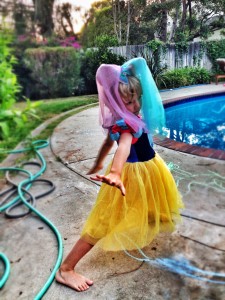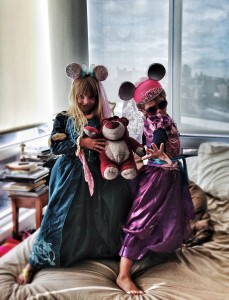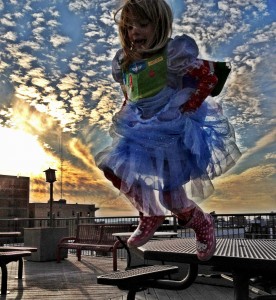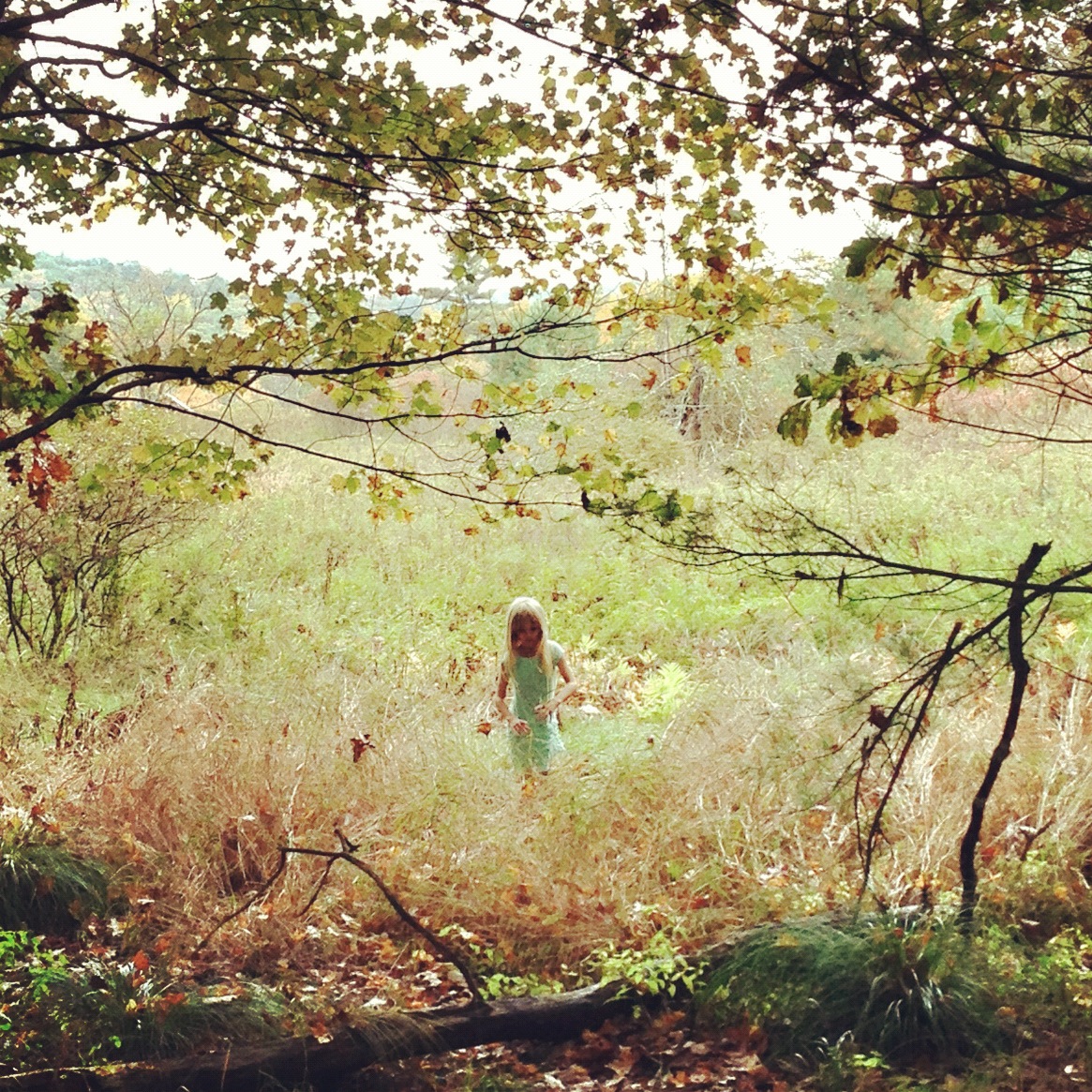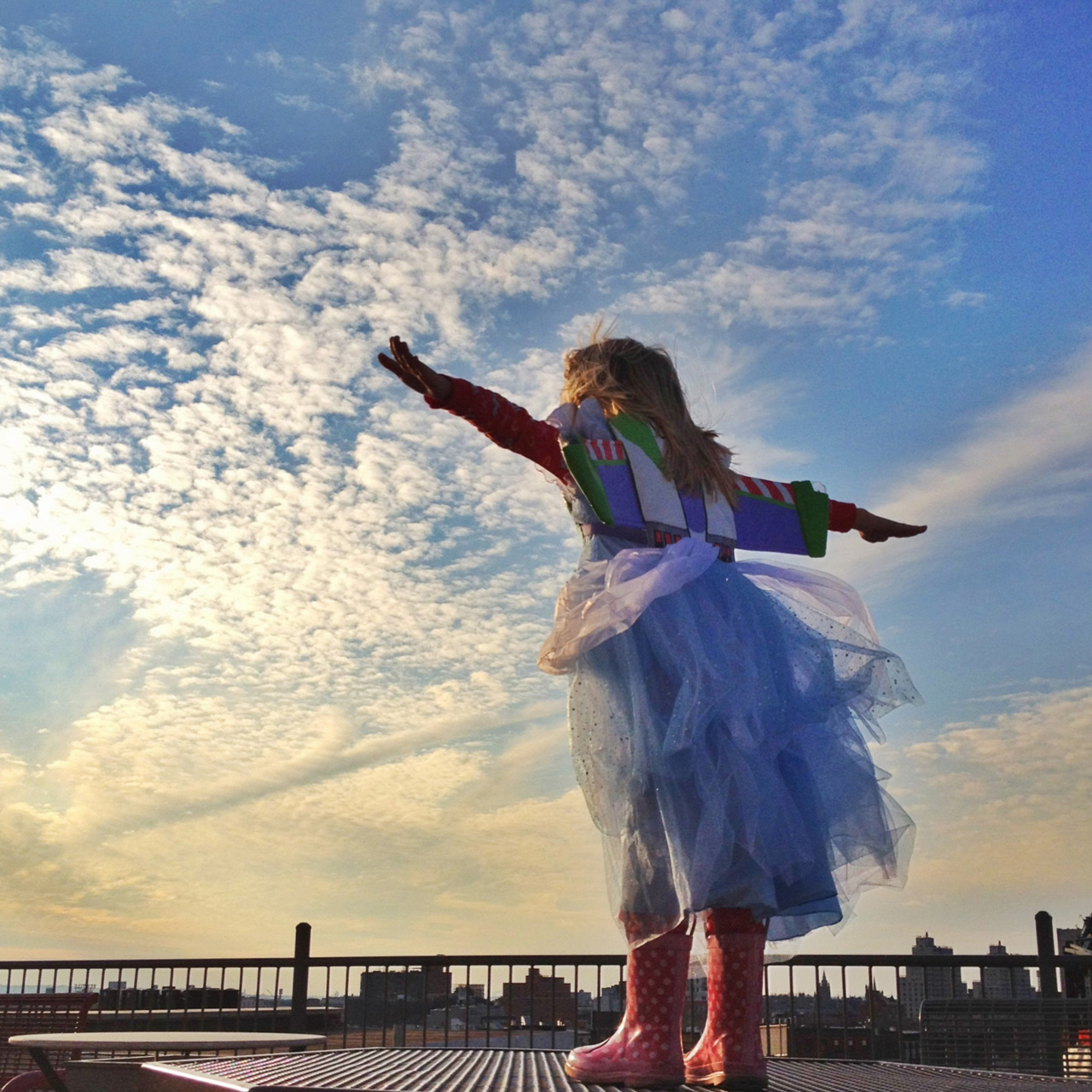‘A lot of people felt that the world had grown too cynical for a sincere fairy tale.’
So says John Lasseter, at the beginning of a behind-the-scenes/making of documentary on Frozen, in explaining why that movie very nearly didn’t get made. Although he doesn’t mean to, he also, in this one statement, provides a possible explaination as to why fairy tales – in all their iterations and permutations, old and new – are such contested cultural territory in our time. We’ve grown too cynical, World.
You can’t walk through the parenting section of a bookstore – or Amazon – without tripping over books about the dangers of princesses and ‘girl culture’ and all things pink and sparkly. (Cinderella will eat your daughter, if you’re not careful, because, according to at least one author, Cinderella is terrible like that.) Upstart toy companies launch marketing campaigns that almost literally replicate a Bonfire of the Vanities, replacing art and books with dollhouses and princesses and pink paraphernalia. Colleges base their recruiting drives on the premise that there’s no future in being a princess, because women, obviously, can’t distinguish between fantasy and reality (which, thanks? I tried to major in Damsel Studies and wish that someone had warned me off of that.) We are a culture that worries that fantasy might be dangerous for children (well, for girl children.) We are a culture that, it seems, simply does not believe that there is such a thing as a sincere fairy tale. We’ve grown too cynical. And it’s hurting us.
Or, rather, it could hurt us, if we were really were that cynical. I don’t think that we are. John Lasseter didn’t think so, either, which is why Frozen got made. And even the most cynical critic would acknowledge that John Lasseter, and Disney, made the right bet when they bet that the world was not so cynical, and that a story like Frozen – a reworking of one of Hans Christian Anderson’s most beautiful fairy tales! with SONGS! – would resonate. We aren’t cynical. We’re not. We love fairy tales – yes, even the ones that feel a little (or a lot) old-fashioned, the ones that feel out of step with our time (we still read Grimm and Anderson, don’t we?) – because fairy tales transcend time, because fairy tales speak to that part of us (child and adult alike) that hopes. The part of us that dreams. The part of us that believes that maybe, just maybe, if we hold still enough, and believe deeply enough, a little bird might just land on our finger and sing to us. Or that a fairy godmother will come to us in an hour of need, or that we’ll find our way out of whatever tower imprisons us. Or that we’ll one day find the courage to just let it go and be our own true selves.
We’re not cynical. The culture (‘The Culture’, TM) pushes us toward cynicism, because cynicism is easier than sincerity, and also it gets bigger headlines. We’re worriers, and so anything that stokes our worry gets our attention. Parents especially: our biggest fear, our core fear, the fear that most defines us, is the fear that we are doing it wrong and that we are going to harm our children. (Yes, this is different than our fear of loss, our fear of Terrible Things, because those are things that we can’t control. Our fear of Doing It Wrong is the fear of being the agents and perpetrators of our own Terrible Things, and it’s a beast of a fear.) The cynical view of anything (of everything) speaks to this worry and this anxiety and this fear – maybe this is bad/corrupt/dangerous/uncool. Maybe I should just avoid this. The cynical view of fairy tales (“‘happily ever after’ is a false and dangerous message”) and princesses (“all they do is wait around for love”) gives us a shorthand for our fear, and a prescription for our anxiety: ah, here’s the problem! And I can fix it by just rejecting these things!
But then we look at our daughters (and our sons), twirling and singing and imagining that a little bird might, maybe – just maybe – come and land on their fingers and we doubt the cynics for a minute, maybe longer, and we wonder whether we’re getting it wrong, again.
We’re not.
Look, yes, there is such a thing as the ‘pink aisle,’ and, yes, princesses (and Barbies and Hello Kitty and American Girls and My Little Pony) are marketed and sold and they make money. But so are action movies and serial television shows and superhero toys and music and cupcakes and running shoes and no end of things that we think contribute to the stock of good in our lives, so who cares that there’s a market for them, as long as we remain mindful and discuss with our children the fact that that’s a thing? Which we should be doing anyway, no? And – I asked this in another post on this topic (a zillion years ago) – why do we not worry (or, at least, not worry so shrill-ly) about the corrupting effects of superheros and pirates? Why do we not wring our hands about kids getting the wrong message about the career options related to piracy, or vigilante crime-fighting? Why is there no book called ‘Batman Defeated My Son and Destroyed Him Utterly’? (If there is such a book, please tell me, immediately.)
Fairy tales (and all of their component parts, like princesses and fairies and dragons and princes and evil queens) matter to girls, and to boys, because they are bigger and older and more important than the marketplace. They are part of a cultural legacy that goes back millenia, and that crosses cultures and languages (one of the earliest recognizable versions of Cinderella, ‘Ye Xian,’ is a Chinese fairy tale, but I would argue that you can find traces of its origin in the Greeks), and that (if scholars like J.R.R. Tolkien are to be believed) are very possibly necessary to our emotional wellbeing. (In fairy stories, Tolkien says, “we get a piercing glimpse of joy, and heart’s desire, that for a moment passes outside the frame, rends indeed the very web of story, and lets a gleam come through.”) They are the narrative expression of sincerity. They are the narrative experience of hope. And if our (or our childrens’) participation in them is only through a movie, or a television special, or an Elsa doll who sings when her hand touches Anna’s hand, or just playing the heck out of a princess fantasy with a DIY ballgown, well, that’s still something. That still matters.
I think that the success of Frozen is proof of that. Frozen is a fairy tale for our time, and its princesses are princesses for our time, and John Lasseter can say that in its way Frozen is an overturning of the Disney model of fairy tales and be totally right, and all these things are true and good but what matters most is this: it is a fairy tale, and it calls to us because we are not cynical. It calls to us because it is sincere, and sincerity sings to the best parts of us, the parts that hope and dream and yearn for joy, the parts of ourselves that we want to believe in, and that we want our children to believe in. It sings to the parts of ourselves that believe.
So. Yes. You should watch that documentary. And then maybe read a fairy tale.
(And yes, I’m biased. I am super biased. But my biases only stoke my passion on this topic. And that passion pre-dates my work with Disney – it extends way back into my academic career – so. Full disclosure and all that.)
(Regardless of where you stand on the topics at hand, The Making of Frozen is super interesting. The creators and actors tackle the ‘princess question’ head-on, and you’re a tougher person than me if you can see the clips of dads singing with their daughters and not well up. And learning about how it almost wasn’t made, and how the best song almost didn’t make it into the movie, and the evolution of Elsa from villian to heroine, and the development of the counter-love story love story… anyway. Watch it if you can. And for a wonderful deconstruction of what to expect if you watch it, check out this post on this lovely new site. And also this one.)


